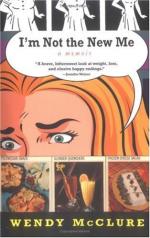Windham had got to the stairhead by this time. Agnes Maine stood there, on one side, looking calm and contained, and he took up his position on the other, and followed the cue given by young Coleman. He began to call out, extolling the absorbing and thrilling character of the performance down-stairs, with the extravagant epithets of the circus posters, laughing all the while. He urged them on when they lingered, and restrained them when they came too fast, addressing one and another with jocularity, laying his hands on some and pushing them on with assumed playfulness, keeping up the fire of raillery with desperate resistance. When screams were heard now and then from below, he made it appear to be only excited feminine merriment, directing attention to it, and calling out to those yet to come:
“You hear them? Oh, yes; you’ll scream, too, when you see it!”
All the time, though his faculties were sufficiently strained by the effort he was making, he was watching Agnes Maine, who stood opposite, doing nothing, but looking her calm, pale self, and now and then smiling slightly at his extravagant humor. And he thought admiringly that her simple quiet did more to keep up the illusion than all his labored and violent simulation.
It seemed as if there never would be an end to the stream of leisurely people who answered his banter with laugh and joke. But finally the last of them were fairly on the stair, and he turned to Agnes Maine with a suddenly transformed face.
“Now—be quick!” he called.
But she gave a low cry, looking away toward the farther end, where she caught sight of a young couple still lingering. She ran toward them, calling to them to hurry, and as they did not understand, she took hold of the girl, and made her run. Windham had followed her, and the four came together to the stairhead, but there they stopped, and the young girl broke into wild screams. The foot of the stairway was wrapped in smoke and flames.
There was an observatory upon the house, into which Windham had once gone with Jeffrey Coleman, and he turned to it now, and made the three go up before him. He stopped and cut away a rope that held some of the hangings, and took it up with him. Miss Maine was standing with her arm about Fanny Lee, whom she had quieted.
“Had she better go first?” he asked.
“Yes, of course,” Miss Maine answered.
He fastened the rope about the girl, assured her they would let her down safely, and between them they persuaded her, shrinkingly, to let herself be swung over, and lowered to the ground. In this Miss Maine gave more help than young Pritchard, who shook and chattered so much as to be of little use. And as soon as the girl was down and Windham turned toward Miss Maine, Pritchard took a turn of the rope around the railing, with a hasty knot, went over, and slid down it, out of sight. But before he reached the ground, the rope broke loose, and slipped out of Windham’s grasp as he tried to catch it.




